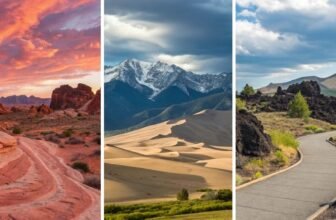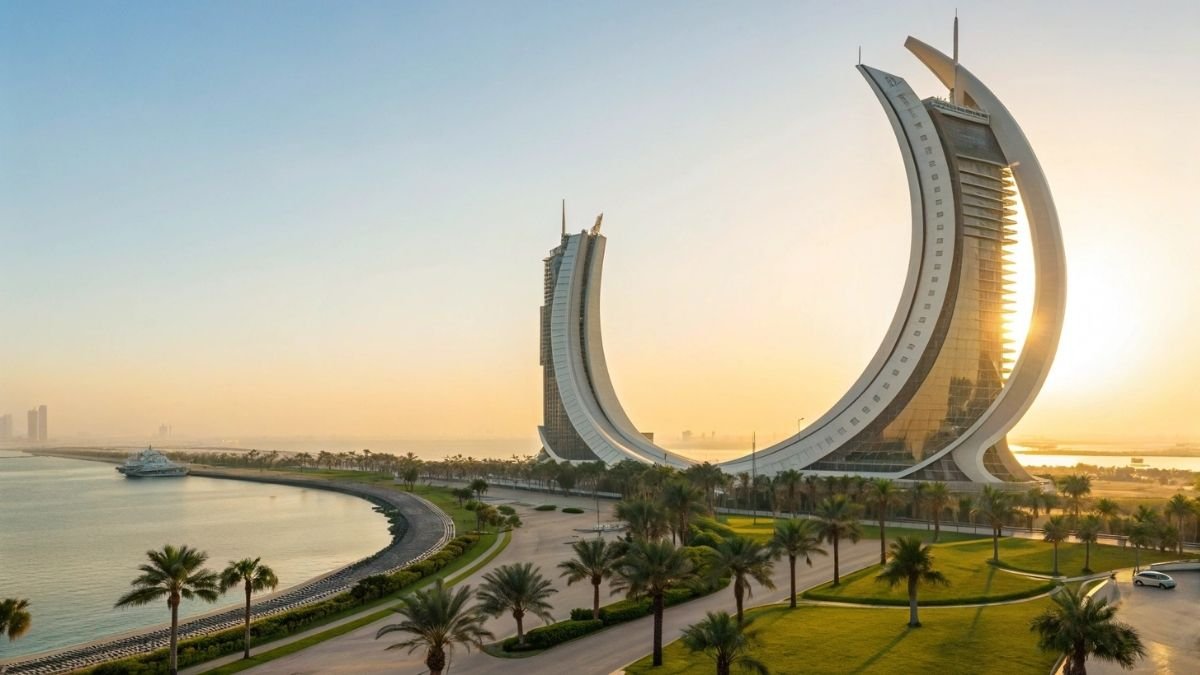
What if your hard-earned money didn’t have to take a detour through someone else’s pocket? The truth is, there are places in the world where your foreign income stays completely untouched—and they’re not just financial loopholes, they’re actual lifestyles.
Sunny escapes, modern hubs, serene islands—each with its way of saying: keep it all. Whether you’re freelancing from a beachfront hammock or building your business on the other side of the globe, these destinations let you earn freely and live fully. Some are bold, some are quiet, but all offer one thing in common: zero tax, total freedom.
1. British Virgin Islands (BVI)
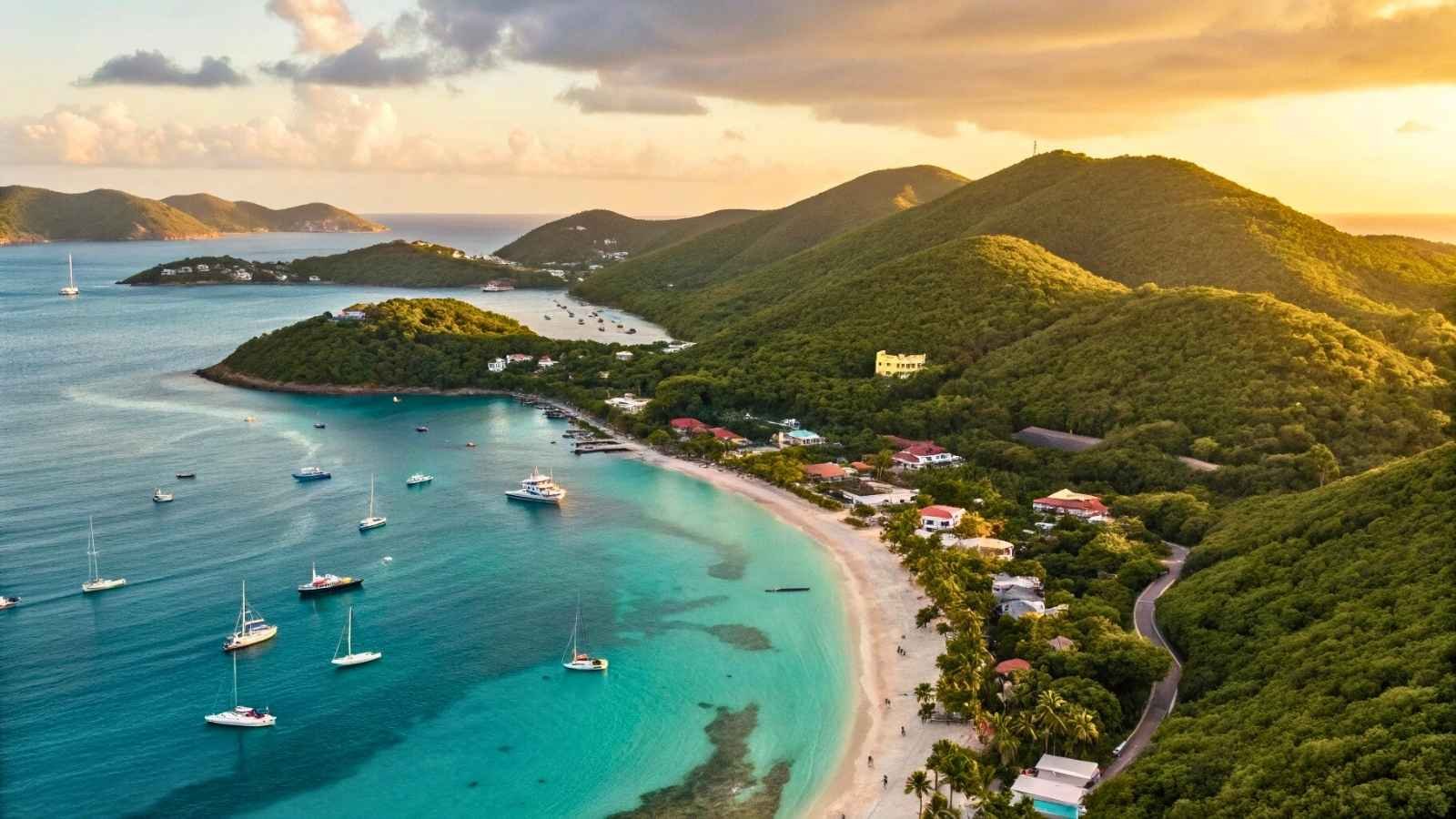
The British Virgin Islands aren’t just postcard-perfect—they’re also one of the most appealing places in the world for anyone looking to keep 100% of their foreign income. There’s no personal income tax, no capital gains tax, and no inheritance tax. That’s right—your money stays yours. While it’s known as a corporate tax haven, many digital nomads, entrepreneurs, and retirees are catching on to its personal finance benefits, too.
BVI’s appeal goes beyond numbers. The lifestyle here is relaxed yet luxurious, with world-class sailing, crystal-clear waters, and a strong sense of privacy. It’s not the place for big crowds or bustling cities, but if you’re someone who thrives in tranquil environments, it’s an underrated paradise. Internet infrastructure has improved significantly in the last few years, making remote work far more practical than it used to be.
The catch? The cost of living is high, and residency isn’t as easy to obtain without significant financial ties. But for those who can afford it, BVI offers a rare combination: a true tax haven with unmatched natural beauty.
Other useful info:
- Best months to visit: December to April (dry, breezy, and perfect for yachting)
- Residency type: No official digital nomad visa; long-term stay requires business or property ties
- Currency: U.S. Dollar (USD)
- Language: English
- Weather: Tropical with a wet season (May to October)
- Major perks: Zero taxes, stable legal system, elite lifestyle
- Watch out for: Hurricanes (especially August–October)
2. Bahamas
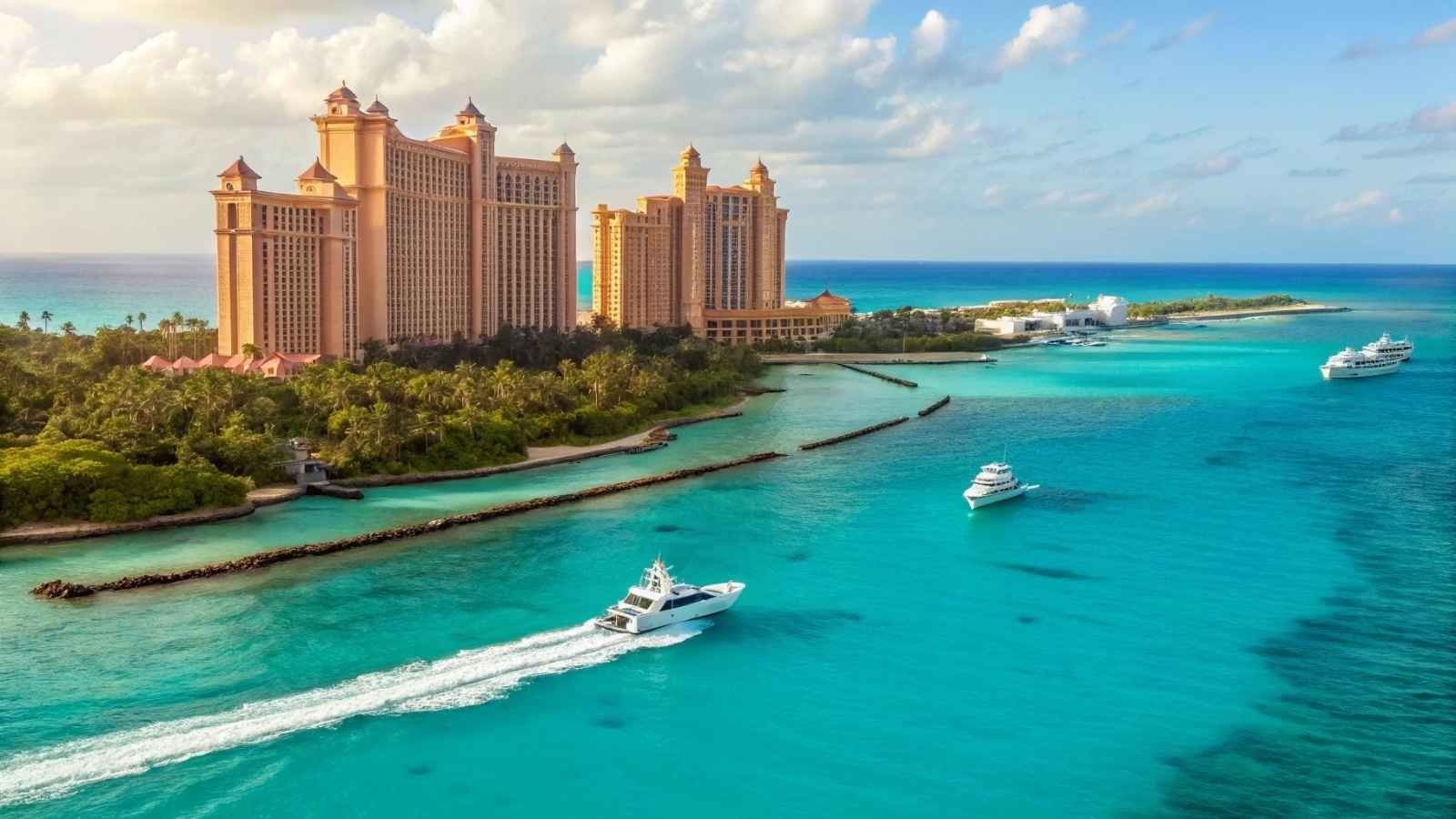
Few countries market luxury like the Bahamas, but behind the pink sand beaches lies one of the most tax-friendly systems in the world. There is no personal income tax, no capital gains tax, and no wealth tax. That means every cent you earn abroad can stay in your account, untouched.
Life in the Bahamas is a blend of Caribbean ease and upscale living. The larger islands like Nassau and Grand Bahama have all the amenities you could want, including fast internet, private schools, and international airports. Meanwhile, the Out Islands offer a quieter, more authentic escape for those who don’t need much beyond a hammock and a hotspot. It’s a favorite for those with remote income streams looking to upgrade their scenery.
Residency is accessible through the Annual Residence Permit, or you can apply for permanent residency by investing in property. It’s a relatively straightforward path compared to other nations, especially considering the benefits.
Other useful info:
- Best months to visit: November to April (dry and mild)
- Residency type: Annual permit; Permanent residency via investment (USD $750,000+)
- Currency: Bahamian Dollar (pegged 1:1 with USD)
- Language: English
- Weather: Warm year-round, hurricane risk June–November
- Major perks: Easy residency options, zero tax, luxury coastal living
- Watch out for: High prices in tourist-heavy areas
3. Bermuda
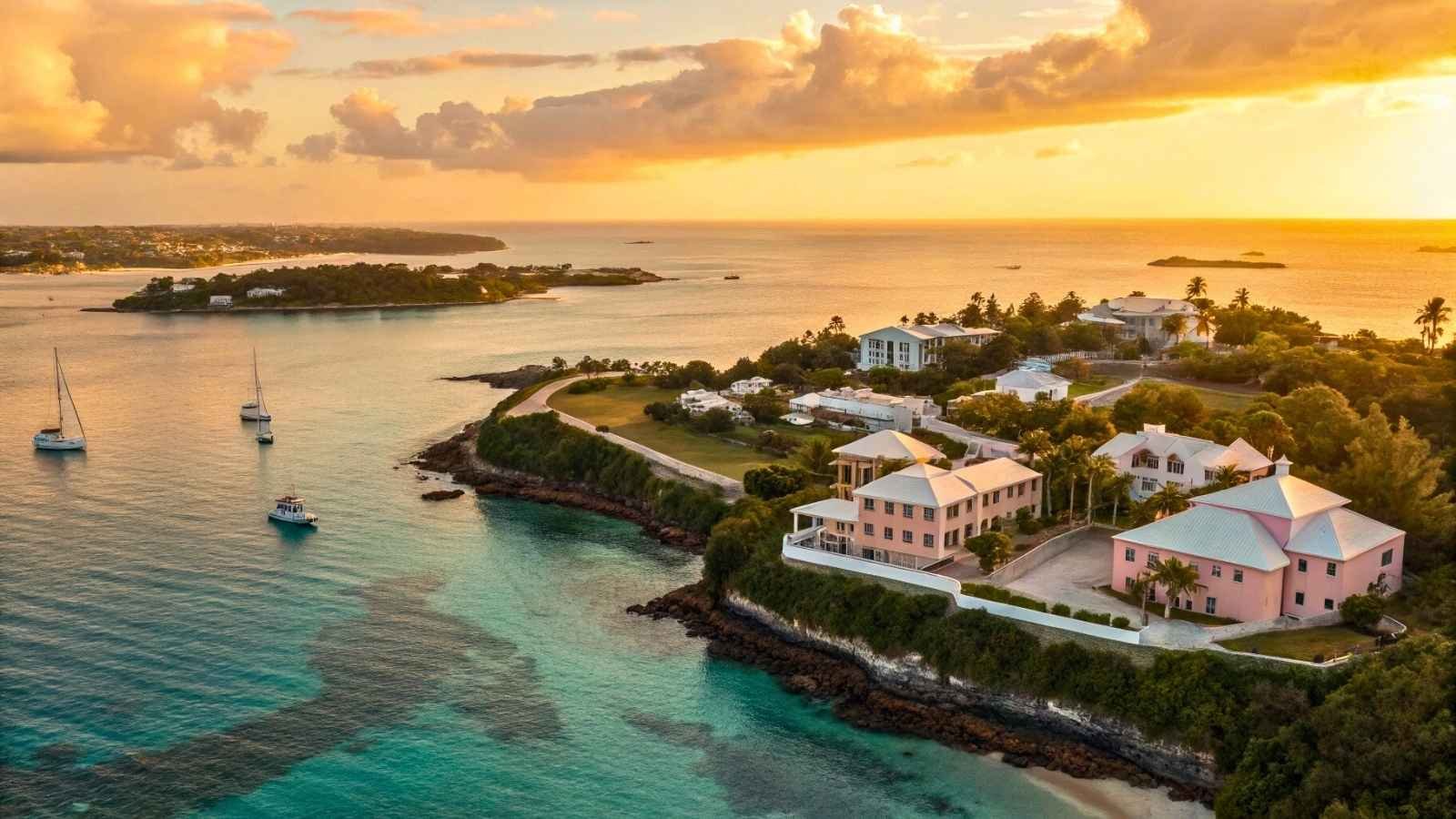
At first glance, Bermuda might feel like a financial playground for the ultra-wealthy—and in some ways, it is. But what makes it compelling for remote earners is its zero tax on foreign income, salaries, dividends, and capital gains. There’s no sales tax, either, though import duties and general cost of living can be steep.
Bermuda’s vibe is more British than Caribbean, with colorful colonial homes, high-end shops, and a surprisingly strong infrastructure. You’ll find solid healthcare, top-tier broadband, and proximity to the U.S. East Coast, which makes it ideal for remote workers who still need to stay connected with the U.S. time zones.
The government introduced a “Work from Bermuda” visa, a one-year residency program for remote workers and entrepreneurs. It’s simple to apply for and provides a unique way to enjoy tax freedom without needing permanent ties.
Other useful info:
- Best months to visit: May to October (warmest and driest)
- Residency type: “Work from Bermuda” remote worker visa (valid for 1 year)
- Currency: Bermudian Dollar (pegged 1:1 with USD)
- Language: English
- Weather: Subtropical; mild winters, warm summers
- Major perks: High-quality living, great healthcare, tax-free foreign income
- Watch out for: Very high cost of living
4. Cayman Islands
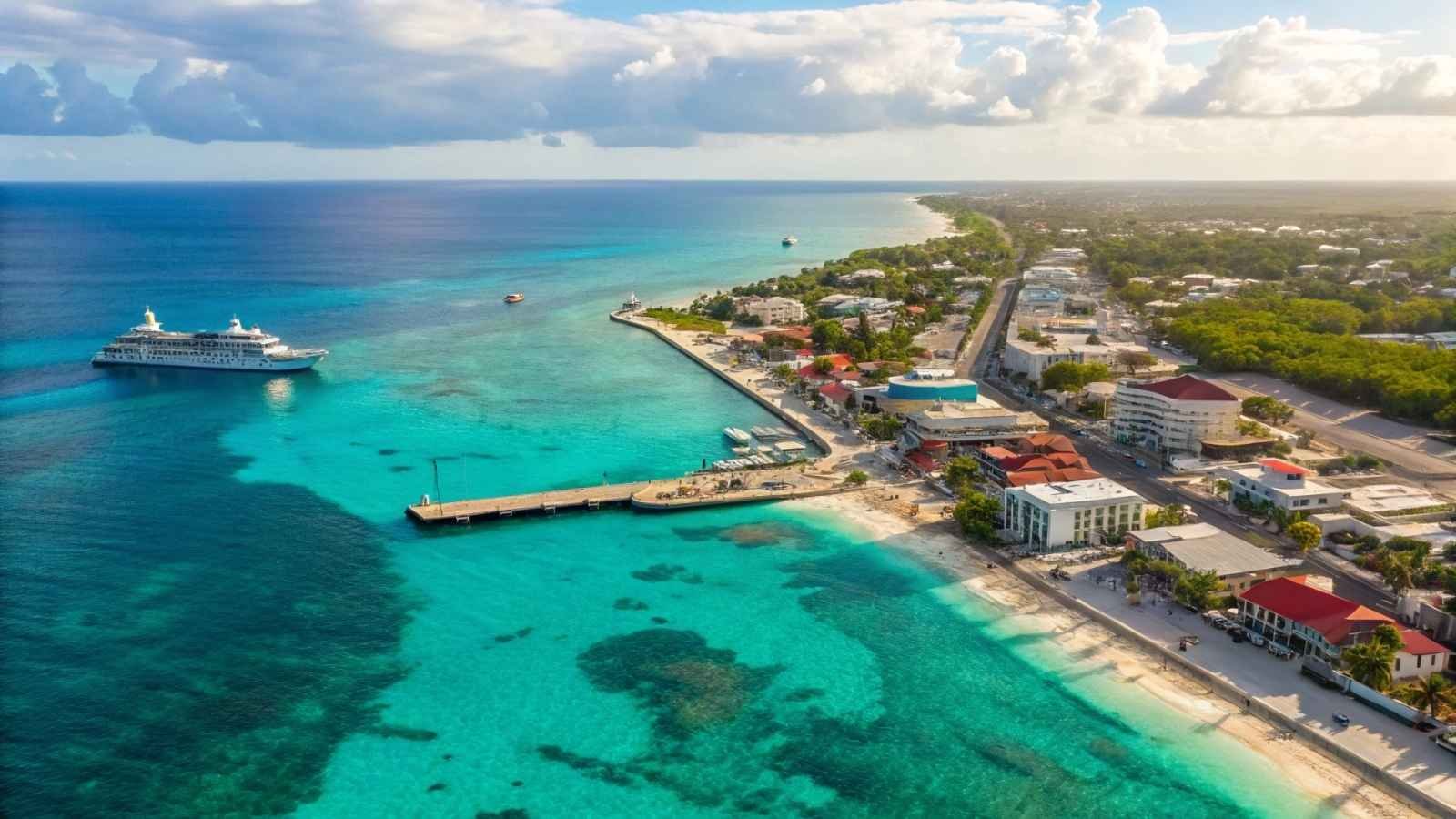
The Caymans are practically synonymous with “tax haven”—and with good reason. There’s no income tax, no capital gains tax, and no corporate tax on foreign-sourced income. What you earn abroad is entirely yours, and the government won’t ask a single question about it.
Living in the Cayman Islands means having access to first-world services in a tropical setting. From upscale grocery stores to high-speed internet and luxury condos, it’s tailored for people who are serious about comfort. Unlike some island nations, the Caymans are also remarkably clean, safe, and well-regulated.
Residency isn’t automatic, but the Global Citizen Concierge Program makes it accessible for remote workers with a good income. It’s one of the most exclusive programs, requiring a minimum annual salary of $100,000 (USD) for individuals, but in exchange, you get to live tax-free in one of the most pristine places on Earth.
Other useful info:
- Best months to visit: November to April (dry season)
- Residency type: Global Citizen Concierge Program (annual income minimum applies)
- Currency: Cayman Islands Dollar (KYD, also accepts USD)
- Language: English
- Weather: Tropical marine climate; hurricane risk June–November
- Major perks: Top-tier infrastructure, world-class beaches, total tax freedom
- Watch out for: High entry thresholds, expensive healthcare without insurance
5. United Arab Emirates (UAE)
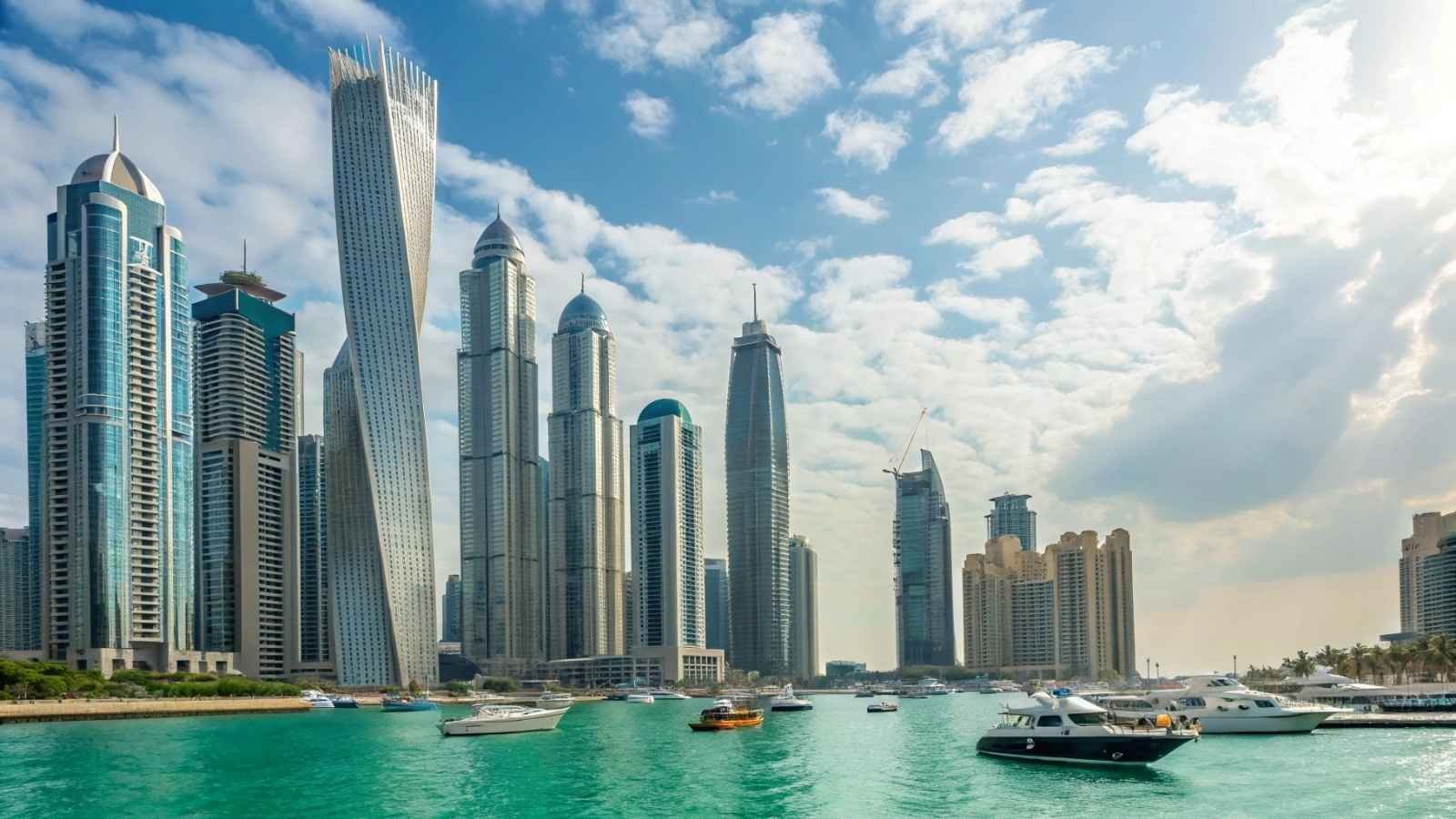
The UAE, particularly Dubai, has become a modern mecca for global entrepreneurs and digital nomads. With no tax on foreign income, no capital gains tax, and a new remote worker visa, it’s one of the most forward-thinking places when it comes to attracting international talent.
What makes the UAE unique is its scale. You’re not living in a sleepy island nation—you’re stepping into a global city with 5-star everything. Shopping, networking, coworking spaces, and a rich expat scene are all part of the package. Plus, the infrastructure is next-level: think hyper-fast Wi-Fi, luxury public transit, and endless entertainment.
Yes, it’s hot in the summer. Hot. But many expats embrace the indoor lifestyle during those months and travel elsewhere when needed. With a stable government, fast visa processing, and serious tax perks, the UAE is a strong contender if you’re ready for a more high-octane environment.
Other useful info:
- Best months to visit: November to March (mild, pleasant weather)
- Residency type: Remote Work Visa (valid 1 year, renewable)
- Currency: UAE Dirham (AED)
- Language: Arabic (English widely spoken)
- Weather: Desert climate; extremely hot summers
- Major perks: World-class infrastructure, zero tax on foreign income, great air connectivity
- Watch out for: Cultural restrictions, scorching summers, high rental costs in prime areas
6. Bahrain

Bahrain often flies under the radar compared to its flashier Gulf neighbors, but for remote earners, that’s part of its charm. This small island kingdom offers zero personal income tax, no capital gains tax, and a surprisingly liberal social climate, especially by regional standards. What do you earn overseas? Yours to keep, tax-free.
Living in Bahrain feels more relaxed than in places like Dubai or Doha. There’s a strong expat presence, affordable housing, and plenty of English spoken, particularly in Manama, the capital. It’s also one of the few Gulf countries with religious and cultural openness, which makes daily life more flexible and comfortable for newcomers.
While Bahrain doesn’t have a dedicated digital nomad visa yet, long-term residence is possible if you’re employed, invest in property, or start a local business. For those who want Middle Eastern benefits without the intensity of its biggest cities, Bahrain might just be the sweet spot.
Other useful info:
- Best months to visit: November to March (cooler and dry)
- Residency type: Work permit, investment visa, or property purchase
- Currency: Bahraini Dinar (BHD)
- Language: Arabic (English widely used in business and daily life)
- Weather: Desert climate; very hot summers
- Major perks: No income tax, liberal lifestyle for the region, strategic location
- Watch out for: Summer heat, occasional political unrest
7. Monaco

If you’ve ever dreamt of living like a Bond villain—without the villainy—Monaco might be for you. This glamorous microstate on the French Riviera is famous for its yachts, casinos, and tax-free status. Monaco does not levy personal income tax on its residents (except for French citizens), which means all your foreign income is safe from local hands.
But don’t let the luxury fool you—Monaco is also remarkably efficient. It’s one of the safest places in Europe, with top-notch security, elegant urban design, and a cosmopolitan expat population. And with its proximity to Italy and France, weekend getaways are practically built in.
Residency isn’t the easiest to obtain—you’ll need to show financial self-sufficiency and secure a local address—but once you’re in, it’s smooth sailing. If you value financial privacy, safety, and Mediterranean living, Monaco ranks high.
Other useful info:
- Best months to visit: April to October (sunny and warm)
- Residency type: Financially independent residency (must rent or buy property)
- Currency: Euro (EUR)
- Language: French (English widely spoken)
- Weather: Mediterranean climate; mild winters, sunny summers
- Major perks: Glamorous setting, zero income tax, safe and clean
- Watch out for: Extremely high cost of living and property prices
8. Qatar

Qatar is more than just skyscrapers and football stadiums—it’s also a country with no personal income tax, no capital gains tax, and a well-structured expat visa system. Foreign income goes untaxed, making it attractive for entrepreneurs, contractors, and high-level professionals.
Life in Qatar is centered around Doha, a modern, fast-developing city with all the amenities you’d expect. Think high-end malls, international schools, cutting-edge transport, and a fast-growing expat community. Cultural norms are conservative, but foreigners are generally free to live how they choose within private spaces and designated areas.
Qatar doesn’t offer a specific digital nomad visa yet, but freelancers or consultants who land contracts with Qatari companies can secure long-term stays. For those with corporate ties or remote clients abroad, Qatar delivers high quality of life and serious tax advantages.
Other useful info:
- Best months to visit: November to March (pleasant temperatures)
- Residency type: Employer-sponsored or business registration
- Currency: Qatari Riyal (QAR)
- Language: Arabic (English commonly used)
- Weather: Desert climate; summers are extremely hot
- Major perks: No taxes, modern infrastructure, strong expat support
- Watch out for: Strict laws on public behavior, hot summers
9. Brunei
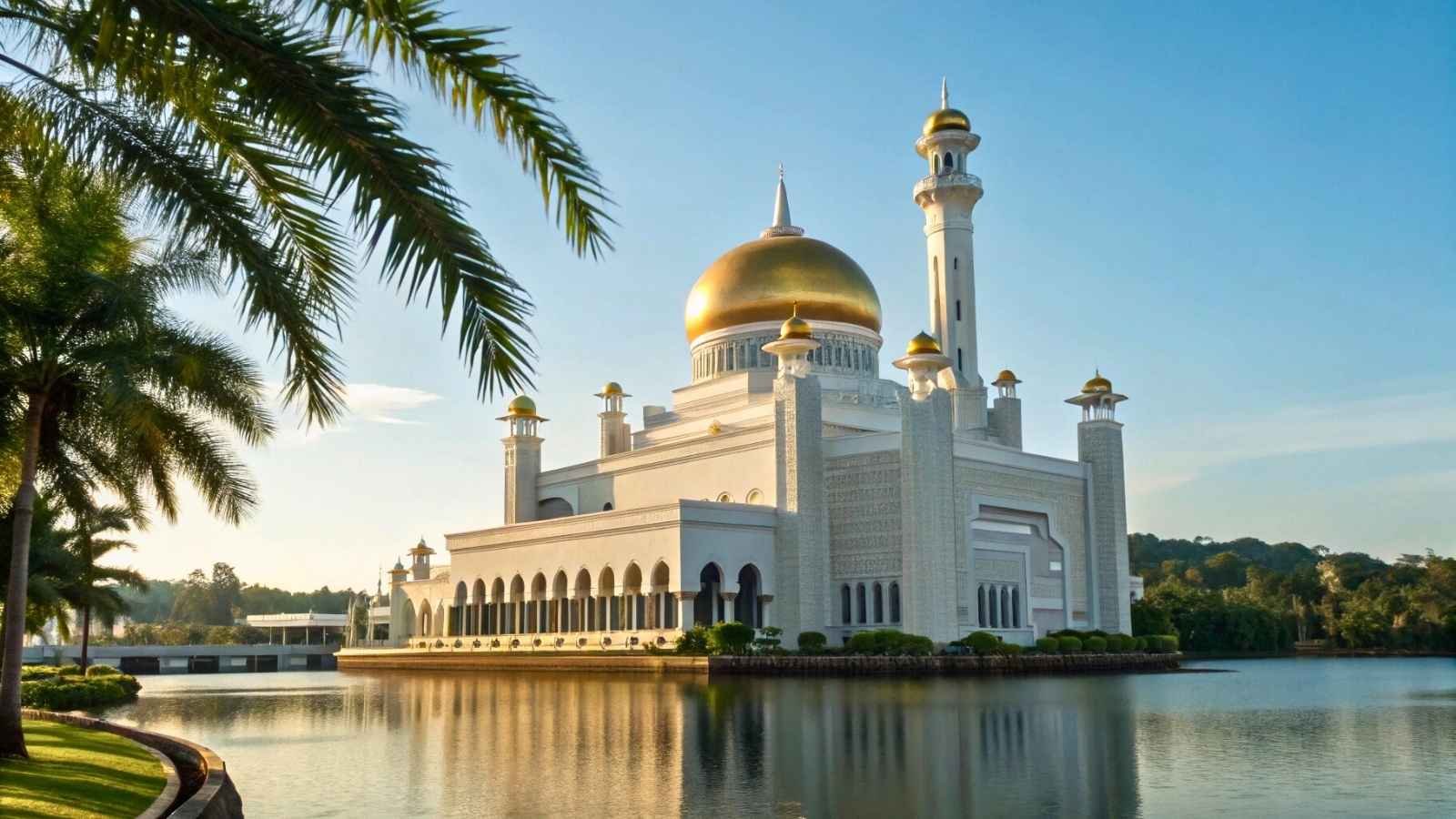
Brunei may be tiny, but it packs a financial punch. This oil-rich sultanate offers zero personal income tax, zero capital gains tax, and subsidized healthcare and education for residents. That means you keep all your foreign income and benefit from generous public services.
The lifestyle in Brunei is peaceful and orderly, with a strong emphasis on family, community, and religion. It’s not a buzzing metropolis, but for those who value serenity, clean streets, and a low-crime environment, it’s surprisingly livable. English is widely understood, and expats often find the pace of life refreshingly slow.
While Brunei doesn’t currently offer a digital nomad visa, long-term stay is possible through employment, investment, or business setup. If you’re after a quiet base with zero tax pressure, Brunei could be the dark horse on this list.
Other useful info:
- Best months to visit: January to May (dry season)
- Residency type: Employment or business-related permits
- Currency: Brunei Dollar (BND; interchangeable with Singapore Dollar)
- Language: Malay (English widely spoken)
- Weather: Equatorial; hot and humid year-round
- Major perks: No taxes, peaceful lifestyle, good public services
- Watch out for: Strict laws, limited nightlife, or social outlets
10. Kuwait

Kuwait rounds out the top 10 with a powerful draw: no personal income tax and no tax on foreign earnings. With a strong economy and a significant expat workforce, it’s a financially rewarding place to base yourself, especially if you land high-skilled, remote-friendly work.
Kuwait City is where most expats live, and it offers modern malls, international schools, and solid infrastructure. While it’s not as flashy as Dubai or Doha, life is authentic here, which appeals to many. English is widely spoken, and services are tailored to foreigners, though the cultural norms are conservative.
Residency in Kuwait is generally employer-sponsored, though business owners can apply independently. It’s not the most nomad-friendly country on paper, but for those with existing ties or contract work, Kuwait can be financially liberating.
Other useful info:
- Best months to visit: November to March (cooler and pleasant)
- Residency type: Work permit or business visa
- Currency: Kuwaiti Dinar (KWD)
- Language: Arabic (English used widely in business)
- Weather: Desert climate; intense heat in summer
- Major perks: Zero income tax, solid infrastructure, strong expat services
- Watch out for: Conservative social norms, limited social life for singles
11. Vanuatu
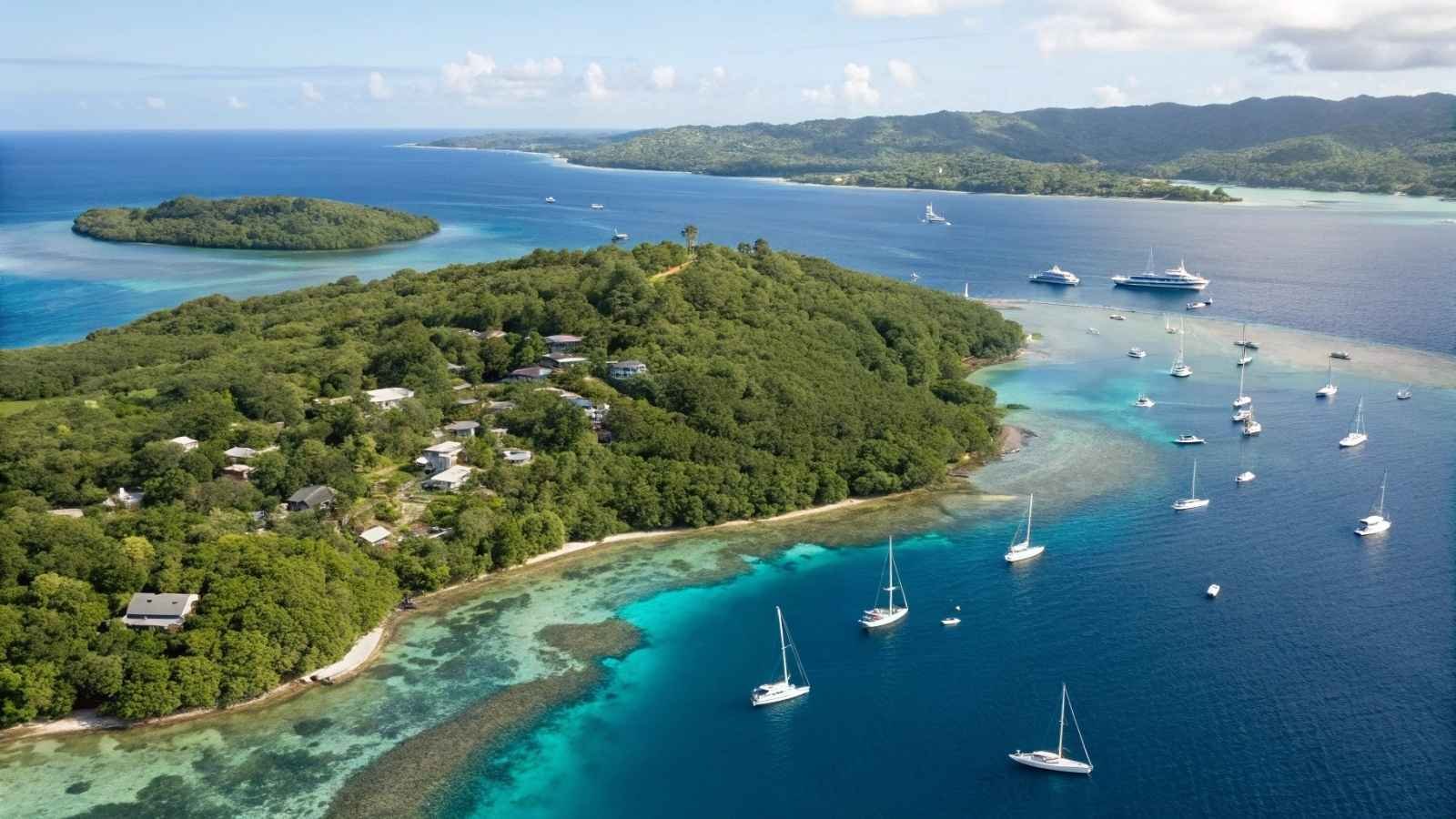
This South Pacific island nation might not be on every traveler’s radar, but for those in the know, Vanuatu offers one of the most straightforward paths to living tax-free. It has no personal income tax, no capital gains tax, and no inheritance tax; most forms of taxation are absent altogether. For remote workers, retirees, and investors, it’s a rare financial refuge with a tropical twist.
The lifestyle is pure island living: laid-back, deeply rooted in local traditions, and surrounded by stunning natural beauty. You’ll find lush rainforests, active volcanoes, and some of the friendliest communities in the Pacific. It’s not luxury in the Dubai sense, but there’s a richness in simplicity here that can’t be measured in square footage or thread count.
Vanuatu also offers one of the world’s fastest citizenship-by-investment programs, making it an unusually accessible option if you’re ready to put down roots. Just be prepared for a slower pace of life and the occasional infrastructure hiccup—part of the charm.
Other useful info:
- Best months to visit: May to October (dry and cooler)
- Residency type: Citizenship by investment or long-term stay permits
- Currency: Vanuatu Vatu (VUV)
- Language: Bislama, English, French
- Weather: Tropical with distinct wet and dry seasons
- Major perks: Total tax freedom, laid-back lifestyle, fast-track citizenship
- Watch out for: Limited healthcare and internet in rural areas
12. Anguilla
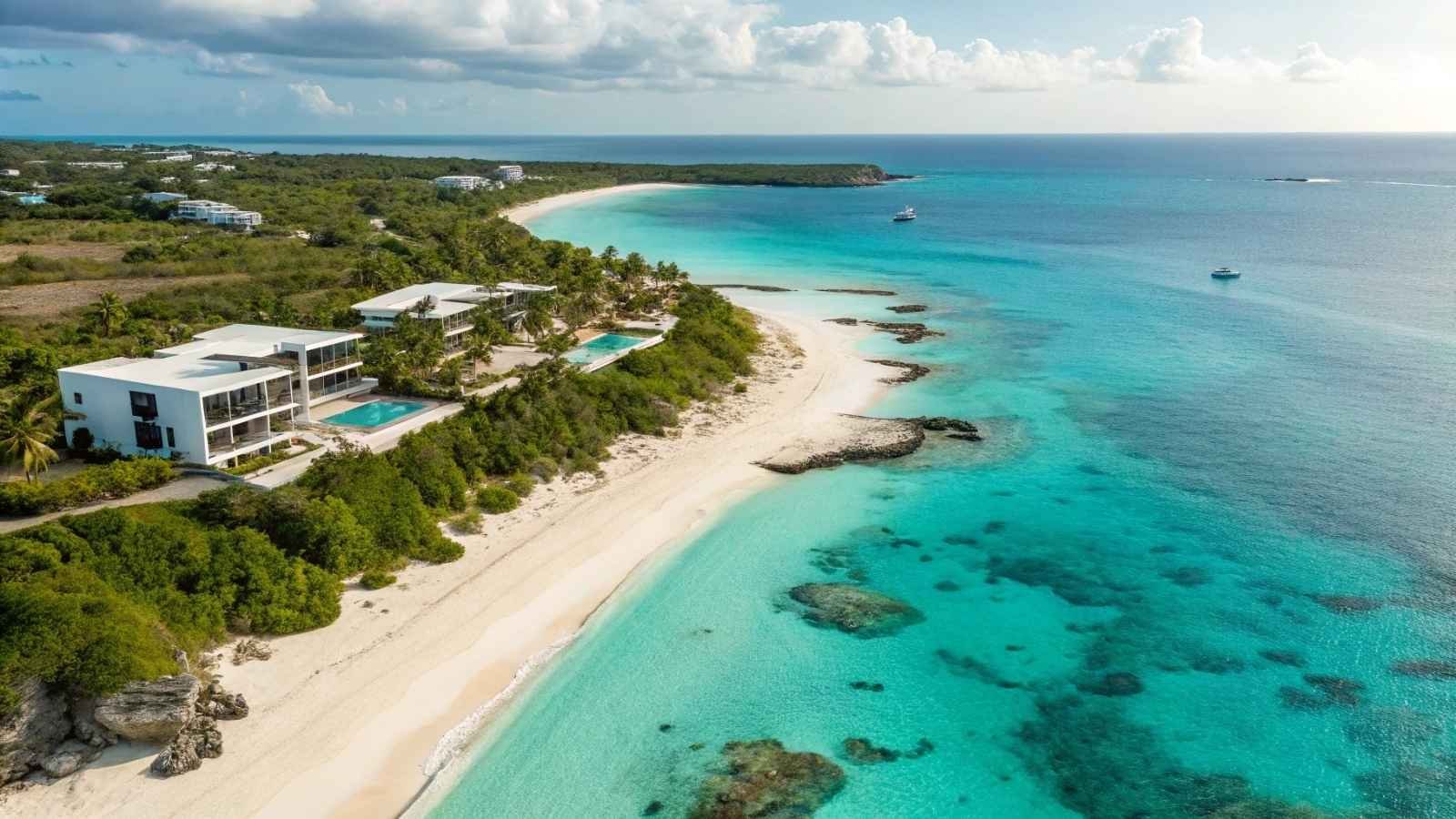
Anguilla is a British overseas territory that keeps things elegant, discreet, and surprisingly tax-friendly. There’s no personal income tax, no capital gains tax, no estate tax, and no corporate tax for offshore companies. And while it’s small—just 16 miles long—it knows how to do upscale island life without being over the top.
Unlike more touristy islands, Anguilla feels more exclusive and personal. Think uncrowded beaches, chic boutique resorts, and a strong expat network that’s genuinely welcoming. The vibe is minimalist luxury: less glitz, more grace. If you’re someone who values quiet, coastal refinement over packed beach bars, this might be your island match.
Residency here is possible through the High-Value Resident Program, which caters to individuals with significant financial resources. It’s not a budget-friendly option, but for those who qualify, it’s a serene, sunny corner of the world to protect and grow your wealth.
Other useful info:
- Best months to visit: December to April (dry and breezy)
- Residency type: High-Value Resident Program or long-stay permits
- Currency: Eastern Caribbean Dollar (XCD; USD widely accepted)
- Language: English
- Weather: Tropical; warm all year with a hurricane season (June–November)
- Major perks: Discreet wealth haven, pristine beaches, zero tax burden
- Watch out for: Expensive cost of living, limited public transport
13. Turks and Caicos Islands
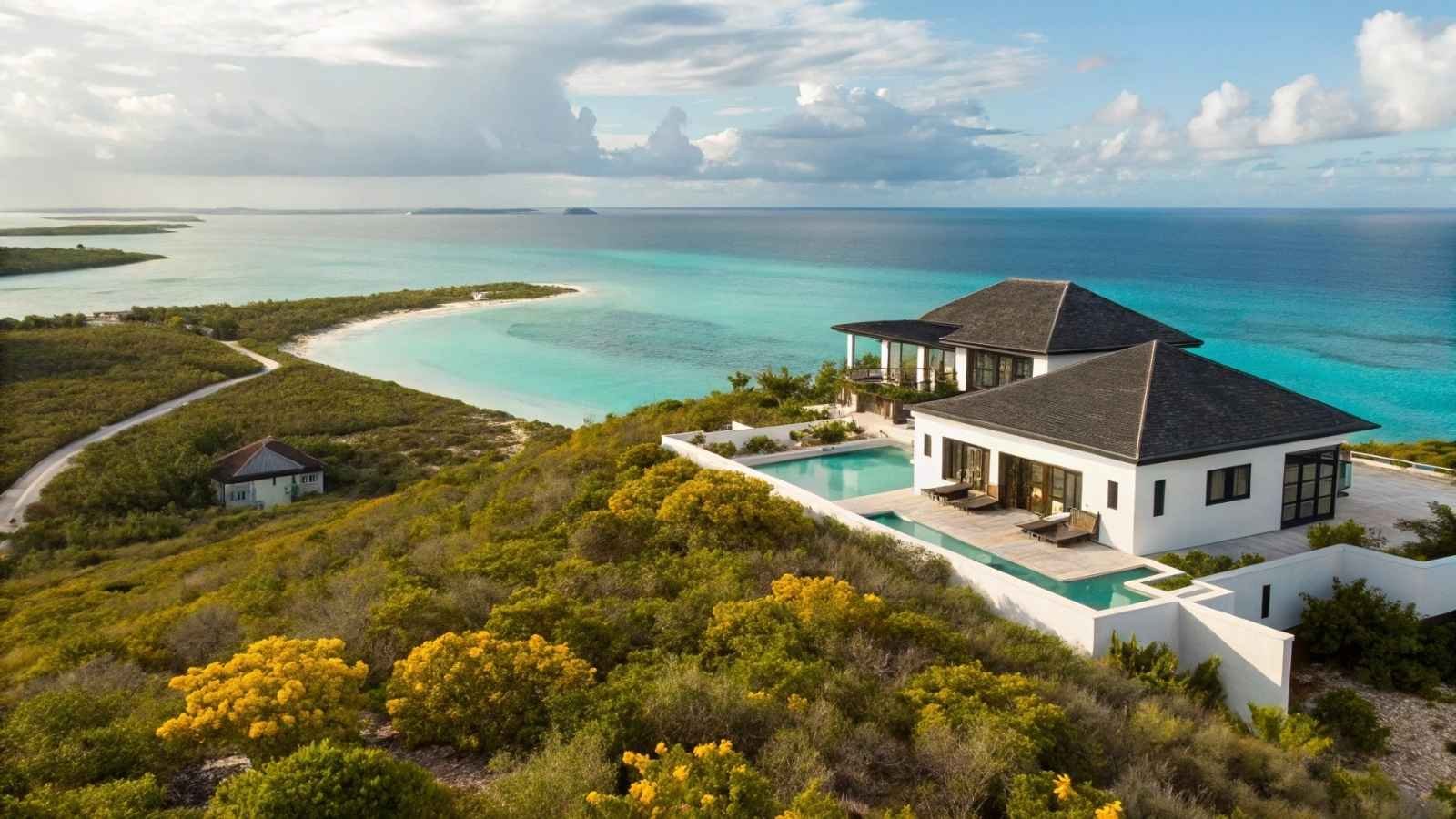
Closing out the list in sun-drenched style: the Turks and Caicos Islands. These British territories in the Atlantic are best known for crystal-clear waters and high-end resorts, but they’re also among the world’s most attractive locations for tax-free foreign income. There’s no income tax, no corporate tax, and no capital gains tax, which means what you earn abroad stays right where it should: with you.
Life here caters to a discerning but down-to-earth kind of expat. Grace Bay on Providenciales offers world-class beaches and upscale amenities, while quieter islands like North and Middle Caicos provide space to unplug. The infrastructure is solid, the healthcare system decent, and the expat services—like legal and financial advisory—well-developed.
There’s no formal digital nomad visa yet, but long-term stays are possible through real estate investment or extended visitor permits. For those who want an island lifestyle that’s both serene and sophisticated, Turks and Caicos strikes that delicate balance.
Other useful info:
- Best months to visit: November to May (dry season and less humid)
- Residency type: Real estate investment or visitor extension
- Currency: U.S. Dollar (USD)
- Language: English
- Weather: Tropical maritime; sunny year-round with hurricane risk mid-year
- Major perks: Total tax exemption, luxury coastal lifestyle, easy U.S. access
- Watch out for: Pricey real estate, limited nightlife outside resorts




